Places Visited: Wyoming: Casper, Salt Creek, Tate Mineralogical Museum
& Salt Creek Oil Museum
July 9 & 10 2006: Casper East RV-Park Casper,
Wyoming. Casper East RV-Park is a mom and pop operation without a mom & pop!
N42° 51.357' W106° 17.338' $28 for full hookup $4 cheaper for water &
30-amps central sewage. They feature gravel interior roads & pads: This is
NOT a destination campground by any means however, it certainly looks much better
than the Fort Casper RV-Park which is nothing but a crowded dusty dirt parking
lot.
Today was the day we set aside for local museums. Tate Mineralogical
Museum is located in Casper, Wyoming on the campus of Casper College. One never
knows what will be presented in a Mineralogical Museum but geology will generally
be the main theme. Wyoming is rich in mineral resources so that could have been
their major thrust but fossils seemed to be their interest.
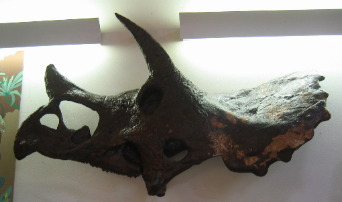
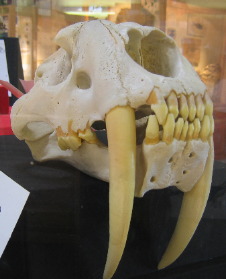
Tate
Mineralogical Museum concentrated on fossils many from Wyoming but a splattering
from other areas of the world.
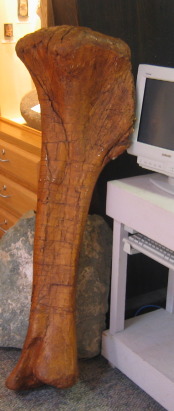
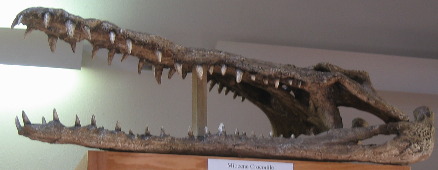
This
dinosaur femur is now a solid piece of rock, and look at the size! This ancient
crocodile was at least twice the size of today's crocks.
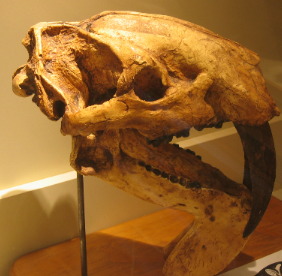
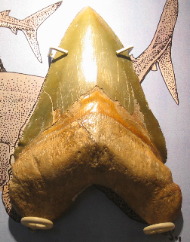
This
rock saber tooth tiger is a spectacular display. The shark tooth was unbelievably
BIG. It is about 8" across at the bottom and around 12" tall. That came
from a monster shark, much larger than anything swimming today.
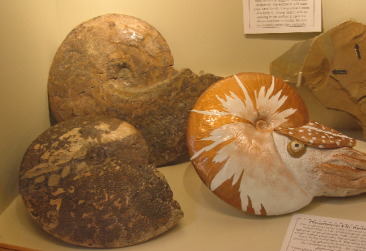
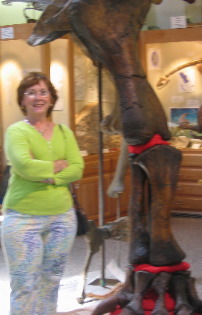
This
display of ancient shellfish consists of rock examples and a model of what the
original animal would have looked like.
Joyce is fascinated by this display
of a large dinosaur leg bone.
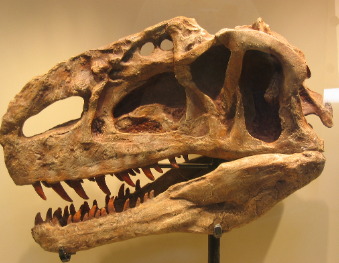
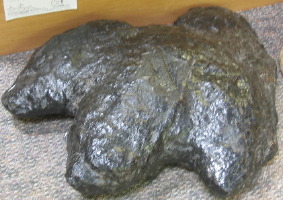
Some
animals were awesome meat eaters. This dinosaur footprint fell out of the ceiling
of a coal mine in Alabama. It is coal if you are wondering.
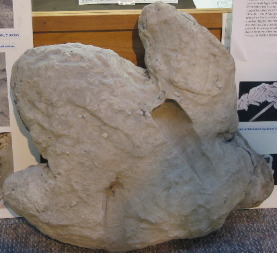
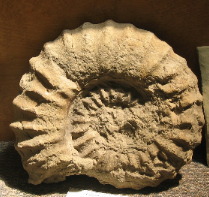
This
is another footprint that appears to be sandstone as is this ancient sea shell.
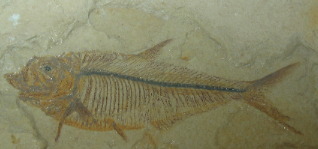
This
fossil fish looks like the menhaden we use for bait along the Gulf Coast.
If
you are passing through Casper, Wyoming Tate Mineralogical Museum on the Casper
College Campus would be a good activity.
The flora and fauna around
Casper repeats itself it different looks.
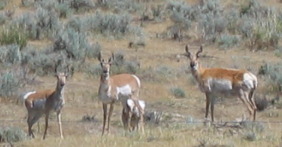
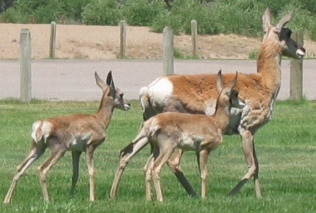
Soon
we are able to spot antelope everywhere we look.

How
would you like these hanging around your garden?

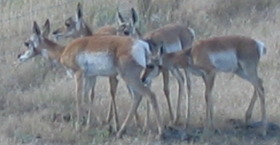

Antelope
are everywhere, in the city, in the open countryside but especially in alfalfa
fields. No wonder farmers and ranchers aren't happy when they see so many of them
in their fields.

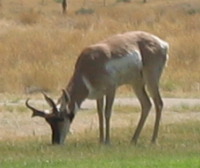
Parks
and golf courses have nice green grass for these pronghorn antelope.
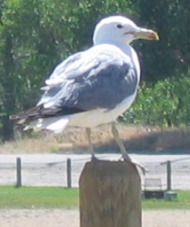
We
see California gulls around Casper like we see gulls around the gulf coast.
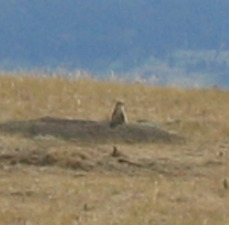
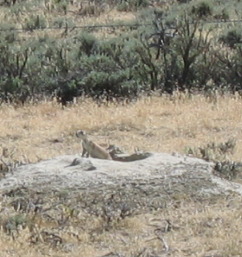
Just
east of Casper we found a prairie dog town that went on for miles and miles. When
we stopped the car they would bark at us then disappear down their burrows.
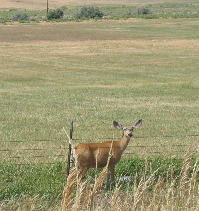
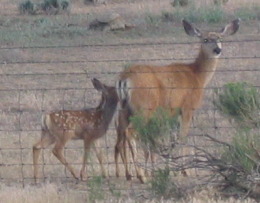
Mule deer are common in the area but in no where near the
numbers of antelope.
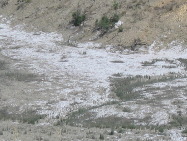
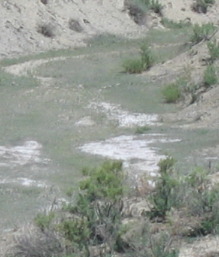
Caliche
forms in low spots when mineral laden water evaporates leaving behind the minerals.
It is fairly easy to spot caliche deposits if you just look.
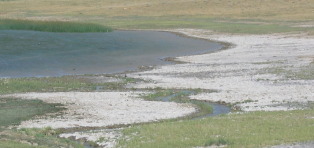
This
lake is drying up leaving caliche along the bank.
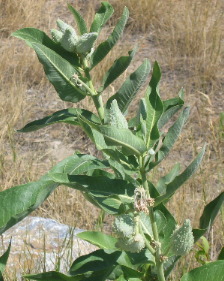
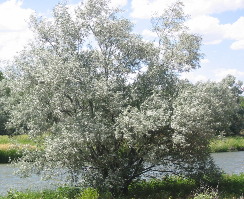
Showy
milkweed is a common weed in Wyoming. We have looked for monarch butterfly caterpillars
on this milkweed but haven't seen any yet. However, we have not seen any monarch
butterflies either.
This silver tree is a Russian Olive that is an
evasive plant along most major rivers in the west. Some municipalities are working
vigorously to eradicate it.
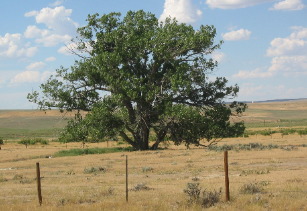
From
time to time we spot a lone tree miles and miles from anything. The only thing
we can guess is that this was the location of a homestead long ago.
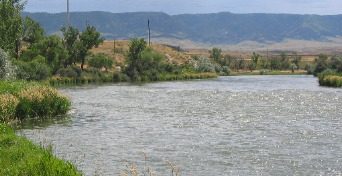
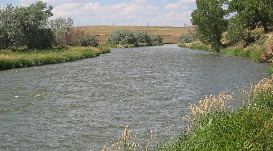
The
North Platte River flows through this region of Wyoming providing life.
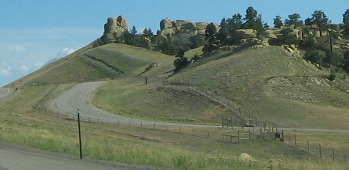

Hoodoos
like these are the result of severe erosion on sandstone.

Erosion
has created this spectacular landscape.
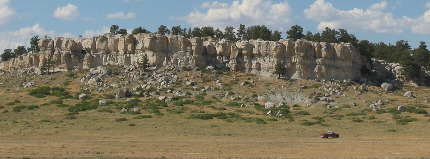
Sandstone
outcrops are a frequent sight where erosion has worn away softer rock layers.

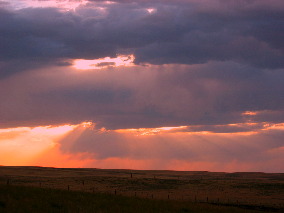
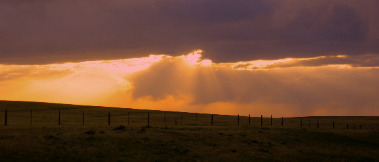
No
series of flora & fauna and the natural world around Casper would be complete
without sharing some of their spectacular sunsets.
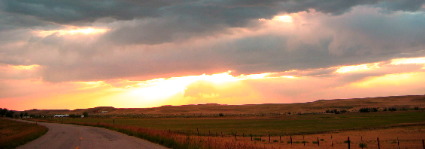
Sunsets
can be so spectacular when reflecting on the golden prairie and green alfalfa
fields.
Now we can dispense with the natural
sights around Casper and concentrate on other things we experienced in Casper.
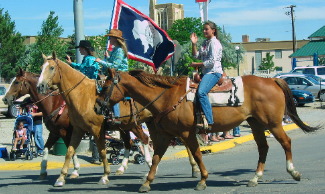
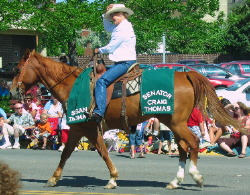
Casper
was having a fair and rodeo the week we were in town. When there is a rodeo and
fair in one of these western town that means a parade and Casper was no different.
To the right someone running for Senator was riding through as all the other candidates
for state and local offices did.
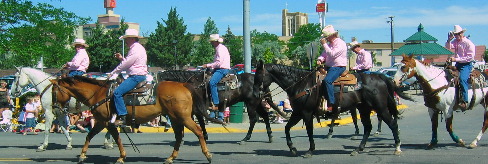
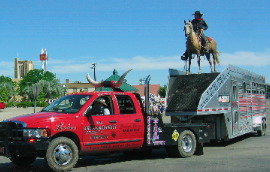
The
horse and rider on the truck to the right is a rodeo act known as the One Armed
Bandit. It is quiet an act. That horse will move around on the top of that trailer
then hop down to the bed of that truck and then down to the ground while that
thing is moving.
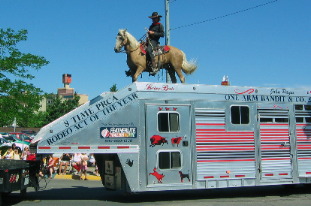
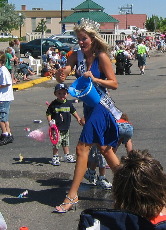
We
stood in the crowd with Miss Wyoming's grandmother. She was very proud of her
granddaughter as well she should have been. As soon as Miss Wyoming passed granny
took off so she could get another look at her granddaughter when she passed another
spot.
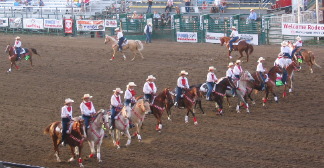
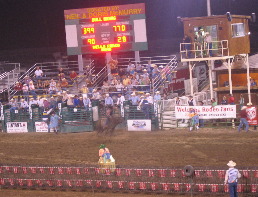
The
rodeo was typical of western rodeos. They have good stock and most of the contestants
are top contenders on the pro rodeo circuit.
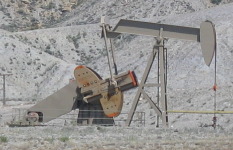
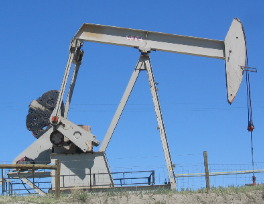
About
20-miles north of Casper is two of Wyoming's largest and most controversial oil
fields. The Salt Creek oil field one of the major oil fields in North America
while the "Teapot Dome" is the one noted for controversy.
The
Salt Creek oil field is only 9-miles by 5-miles but it has been producing oil
since 1889. At that time the oil sold for $10 a barrel and was used b by the Union
Pacific Railroad in its unrefined state as a lubricant. Transportation of the
oil was a major problem. At that time it was hauled 50-miles to Casper by teams
of 15-horses, each pulling a wagon with 45-barrels of oil.
Actually, the
Salt Creek oil field has been producing since the 1850's. I read somewhere that
one of the famous Mountain Men, Jim Bridger, if I recall correctly, would collect
oil from a seep in the area and sell it to emigrants on the Oregon Trail who used
it as a lubricant.
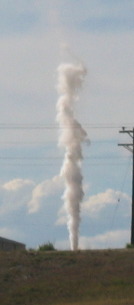
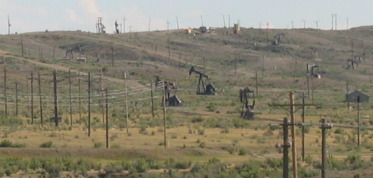
We
watched as oil field workers let off C02 that is used to pressurize the underground
oil and force more oil out of the ground. The picture to the right is typical
of the Salt Creek oil field. Power poles dot the area delivering power to oil
pumps.
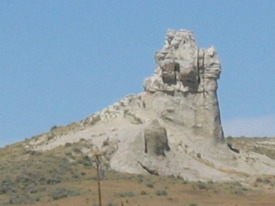
This
formation is "Teapot dome" located in the Salt Creek Oil Field. Some
of you will recall the "Teapot Dome Scandal". The "handle"
of the teapot was damaged by lightening in 1962 so without the handle it is not
so obvious why it was called "Teapot Dome".
When oil was discovered
here in 1922 it was established as a U.S. Naval Petroleum Reserve, since a peace
time reserve of oil was needed for ships. President Warren Harding appointed Albert
Fall as Secretary of the Interior. While in office, Fall leased government oil
land at Teapot Dome to several of his associates, after acception a $100,000 bribe.
When this transaction was discovered, a political storm swept the entire Harding
administration. Fall resigned as Secretary of the Interior. Fall was tried and
covicted and was sent to prison for one year in 1931. Because of this scandal
Teapot Dome became synonymous with corruption. Some of you are old enough to remember
details of that scandal, if so feel free to help me fill in the blanks.
This was an awesome drive for us. We came through the Wind River Canyon
in our motorhome back in 2002 and realized how special this canyon was. Since
then we have wanted to return when we had more time to explore and savor the sights.
Until
next time remember how good life is.
Mike & Joyce Hendrix